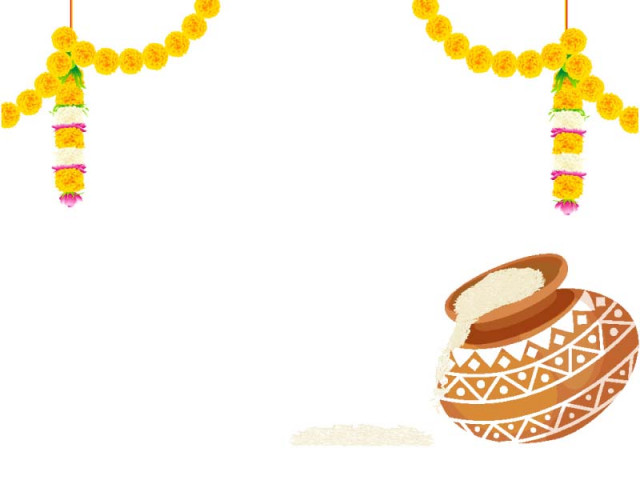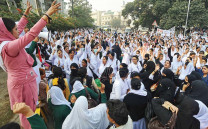Towards greater equality: Sindh leads with bill on Hindu marriage law
Law promises protection against forced conversions, early marriages

DESIGN: SOBIA KHAN
Sindh became the first province in the country to pass Hindu marriage law to regulate the registeration and documentation of Hindu marriages. It also provides protection against forced conversions and early marriages.
The ‘Sindh Hindus Marriage Bill, 2016’ was moved by senior parliamentary affairs minister Nisar Ahmed Khuhro during the Sindh Assembly session on Monday. Apart from Hindus, the same law will apply to people belonging to Sikh, Jain and Buddhist faiths.
Hindus in Sindh have suffered a lot due to the absence of this law, said Khuhro as he gave a briefing on the features of the law. It will empower the pandit and the maharaj to become signatories and solemnise the marriage certificate.
Opposition members wanted, however, to refer the bill to the standing committees to get an input from various stakeholders of Hindus and other non-Muslim communities falling under the ambit of the law. “We should invite the pandit, maharaj and other persons,” said Muttahida Qaumi Movement’s parliamentary leader Syed Sardar Ahmed.
Khuhro drew, however, the attention of the House towards a series of consultative meetings held with stakeholders on this issue. “Not only pandits but we have taken on board elected representatives of minorities of all parties as well as women’s rights activists,” he said.
“Last Friday, we met with minorities’ lawmakers of the Sindh Assembly,” he said, adding that they have all given their consent and there is no need for deliberation. “We can bring more amendments to the law in the future.”
Dissect the law
The bill lays down certain conditions for marriage, in hopes to protect minorities from early and forced marriages. Both the man and the woman must be 18 years or older and able to give free consent. At least two witnesses must be present at the time of solemnisation and registration of marriage, says the law.
Neither the man nor the woman can have a living spouse at the time of marriage, a clause that the government hopes will offer protection from forced conversions and marriages. Each marriage will be registered with the local union council, ward or the relevant municipal authority within 45 days of solemnisation.
If a couple fails to register, they will have to pay a fine of Rs1,000. However, many lawmakers opposed this provision which led to the government deleting this clause.
This bill will come into operation within three months, said Khuhro. “The bill shall also have retrospective effect to validate and register marriages solemnised prior to this law,” he added.
Debate on bill
Minority MPAs spend some time during the session narrating the problems faced by their people in the absence of this law. “Our children face difficulties in getting ID cards, passports and other related documents,” said Pakistan Peoples Party’s (PPP) Dr Kathumal Jeewan.
Opposition leader Khawja Izharul Hasan pointed out that, due to incompetency of all past successive governments, this law could not be passed in the last 68 years.
Pakistan Muslim League - Functional’s Mehtab Akbar Rashdi pointed out that there was no provision for divorce in the law. PPP ministers told her that they will bring more amendments to the law and adjust for divorce.
The lawmakers also reached a consensus that the word ‘minority’ should be done away with and that people belonging to other religions should be referred to as ‘non-Muslims’.
Published in The Express Tribune, February 16th, 2016.


















COMMENTS
Comments are moderated and generally will be posted if they are on-topic and not abusive.
For more information, please see our Comments FAQ